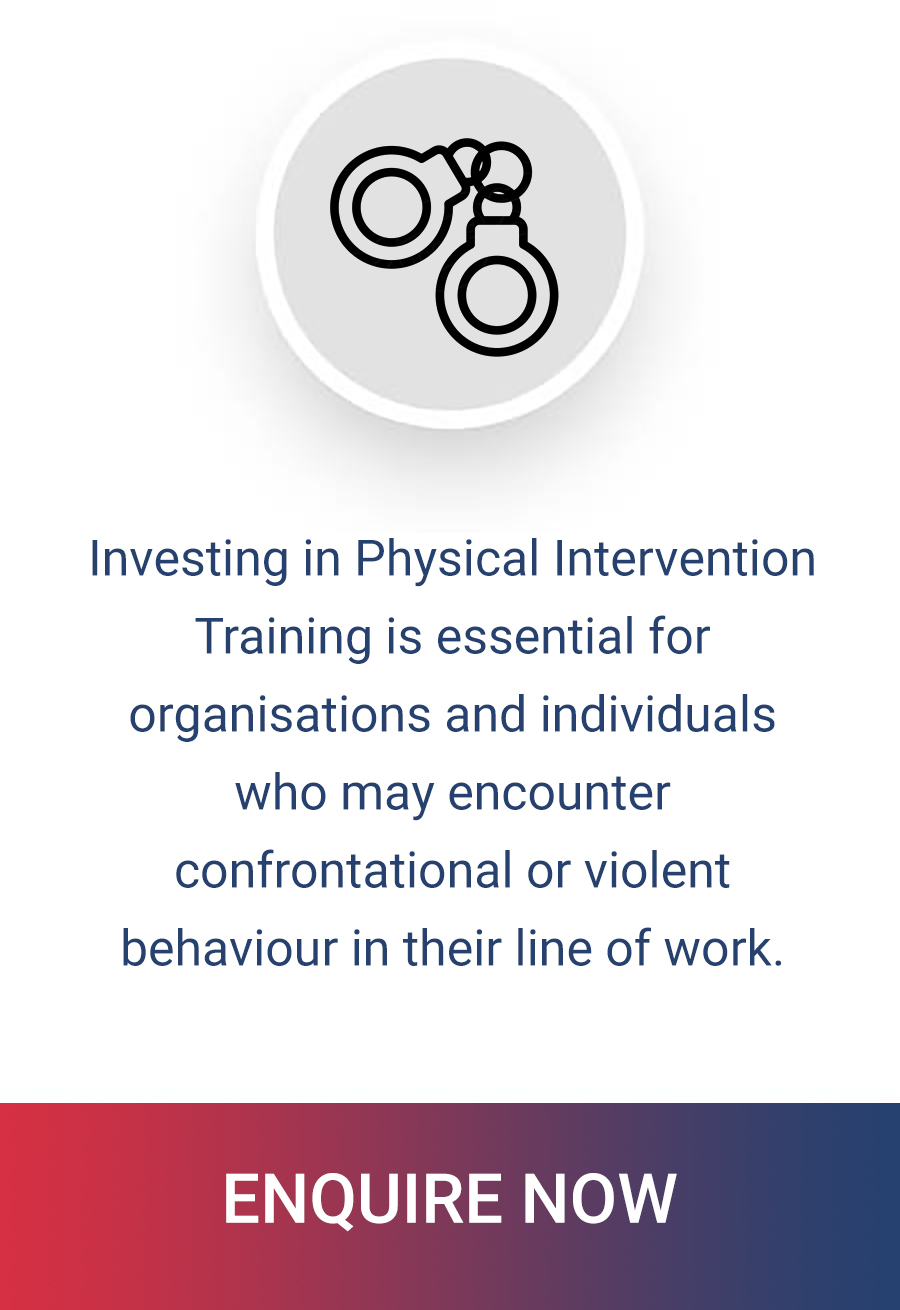Physical Intervention and Control is a comprehensive program designed to equip individuals with the necessary skills and techniques to effectively manage challenging and potentially violent situations. In today’s diverse and dynamic environments, individuals working in various sectors may encounter situations where physical intervention and restraint techniques are necessary to ensure safety and security. Whether it’s in healthcare settings, educational institutions, security roles, or other professions, having the ability to respond appropriately to confrontational or aggressive behaviour is essential.
The training draws upon tactics and strategies utilised by police forces and prison officers across the UK, providing participants with proven and reliable methods for managing volatile situations. By learning from the expertise and experience of professionals in law enforcement and corrections, participants gain valuable insights into effective communication, de-escalation techniques, physical intervention strategies and the medical implications of restraint.
One of the key objectives of Physical Intervention and Control, and Restraint Training is to prioritise the safety of both individuals involved in the situation. Participants learn how to assess the level of risk and respond proportionately, utilising the least restrictive interventions possible to achieve the desired outcome. Emphasis is placed on minimising harm and avoiding unnecessary escalation while maintaining control of the situation.
Additionally, the training covers the safe and responsible use of mechanical restraints, such as handcuffs and limb restraints. Participants receive instruction on proper application techniques, ensuring that mechanical restraints are used effectively and in accordance with legal and ethical guidelines. Understanding the limitations and risks associated with mechanical restraints is essential for maintaining the safety and dignity of all individuals involved.
Moreover, Physical Intervention and Control, and Restraint Training goes beyond just teaching physical techniques; it also addresses the legal and ethical considerations surrounding the use of force and restraint. Participants learn about relevant legislation, policies, and best practices to ensure compliance and minimise liability. By understanding their legal obligations and ethical responsibilities, individuals can make informed decisions and act with integrity in challenging situations.


